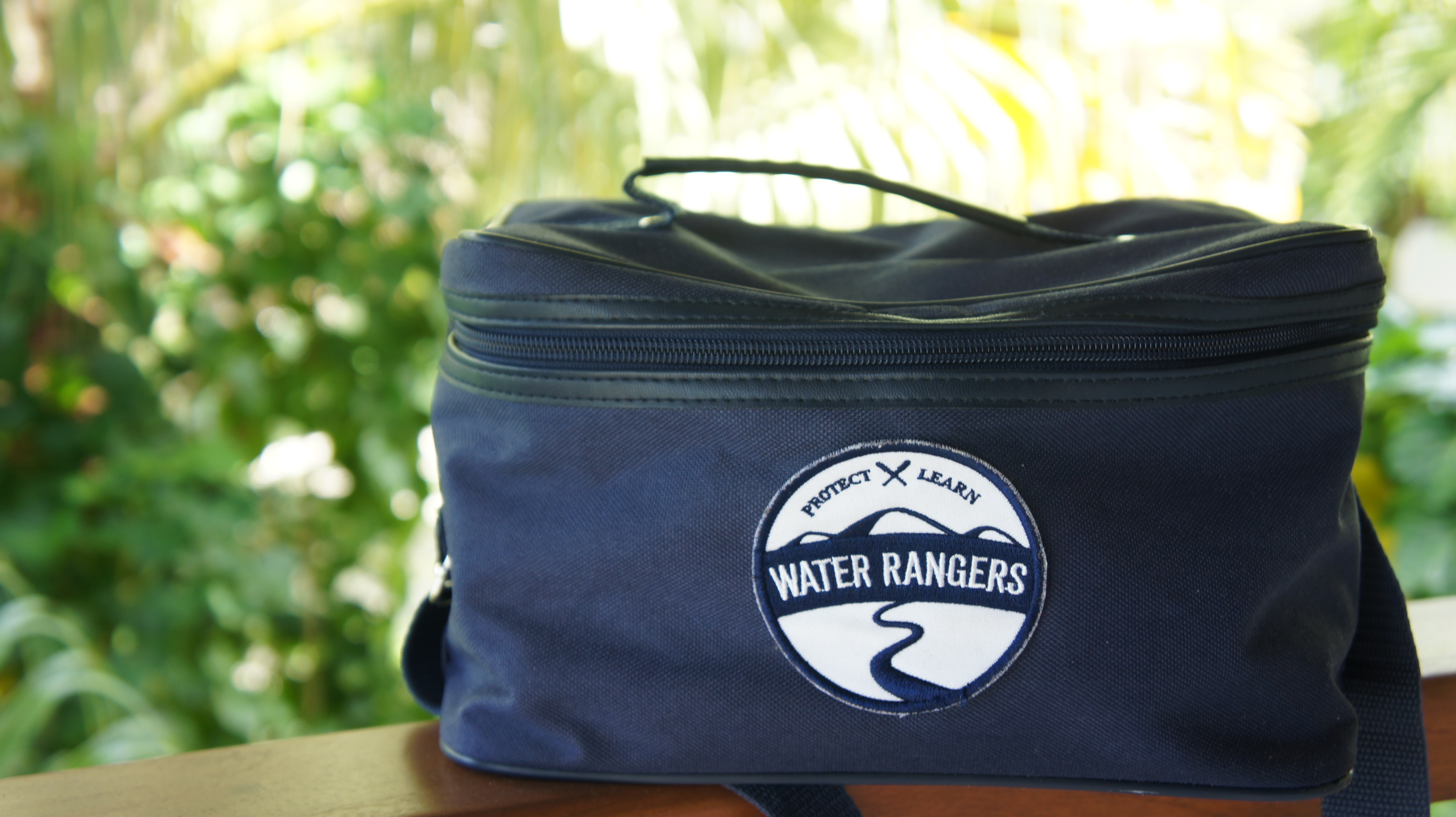17/03/2017
Water Rangers, AquaHacking 2015 Winners, Offers New Tools for Citizen Scientists

BY KATIE SHAPIRO
Looking forward to cooling off in the water this summer? As you cannonball into the lake by your cottage, or dip your paddles into the river, will you be thinking about the health of the waterway you’re enjoying? The folks behind Water Rangers hope so, and they’re ready to help you dive in.
On a mission to engage citizens in the stewardship of our waterways and make water data accessible, Water Rangers is building tools to help citizens and scientists easily record and analyze water data, so that they can use the data to learn about problems, share discoveries and engage with their neighbours.
Kat Kavanagh was inspired to make the process more intuitive and accessible for non-scientists after doing some water tests with her dad near their cottage in the Laurentians. A senior web and game designer, she discovered a new passion for water science and water health and was contemplating going back to school to study biology in 2015. Instead, that spring, Kavanagh was part of a winning team at Aquahacking’s Ottawa Summit – a two day hack-a-thon to develop technical solutions for the Ottawa River. Her team’s citizen science platform was essentially a prototype for what would later become Water Rangers.
By August 2015, Water Rangers three-person team – Kavanagh, as executive director and designer; her husband Ollie Kavanagh, also a designer and developer; and Mark Dabrowski, the director of technology and head developer – was registered as a non-profit. While none of them had formal backgrounds in water science, their enthusiasm for the subject is contagious.
So, how can you become a Water Ranger? It’s easy! Folks who sign up as Water Rangers simply create an online profile, go through some quick training, and then take a test kit to take out to the field, whether it be to a nearby lake or an ocean.
Water Rangers test kits include tools to test pH, water clarity, and other aspects of fresh and salt water. Photo by Katie Shapiro
Typical tests include measuring devices for pH levels, which indicates the acidity or basicity of water and water clarity, which indicates how deep light can penetrate into the ecosystem. Once the data is collected it can be input immediately into the Water Rangers app, or recorded by hand to be logged on the website later. Over time, the data collected can show whether trends indicate a stable aquatic system or one that is changing. Rangers get points and badges as they become more involved (no capes yet, but other fun things are in the works!).
I packed a test kit in my luggage and became part of the team on a recent trip to Jamaica. My partner scoffed at the idea of adding water testing to our vacation, but it was such a quick process that adding a few water tests to our beach time was easy and fun. Far from being the first person to take a Water Rangers kit to international waters, there have been Ocean Explorers on the Atlantic, Pacific, and Arctic Oceans already.
While the goal is to get folks out completing tests and collecting data, Kat emphasizes that the engagement of citizen scientists is equally important. By helping to monitor water health, participants become engaged water stewards. It sensitizes communities to the issues affecting their waterways and connects them to established organizations that work in water health.
Water Rangers currently partners with groups like the Ottawa Riverkeeper, the Rideau Valley Conservation Authority, the City of Ottawa, and Mobile Baykeeper in Alabama to let people access their data online and learn more about what the water tests and results mean.
While individual observations may seem like a mere drop in the ocean, Water Rangers has already made a splash with over 15,000 observations. And the team has big dreams, including a web store for people to purchase their own kits. An offline app is being developed thanks to funding from the City of Ottawa, and the Rangers have just received a grant from Ontario 150 to equip 17 community groups across the province with the goal of testing 150 sites in Ontario in 2017.
Kat jokes that an experience with Water Rangers is like a “gateway science” that gets people hooked on protecting our waterways. Keen to get your feet wet? Swim over to www.waterrangers.ca to get started.
http://ottawamagazine.com/going-out/get-your-feet-wet-water-rangers-offers-new-tools-for-citizen-scientists/

